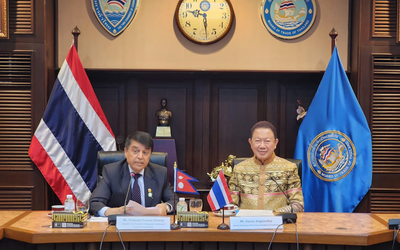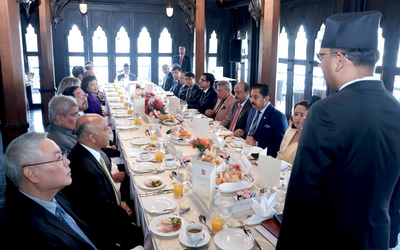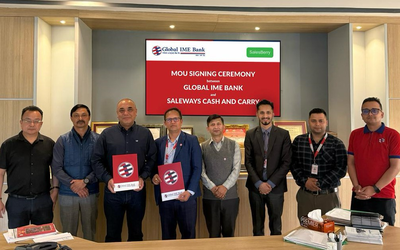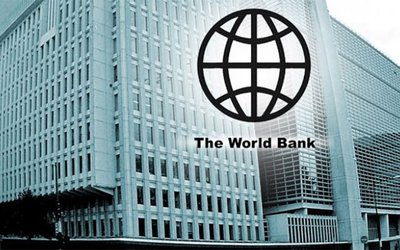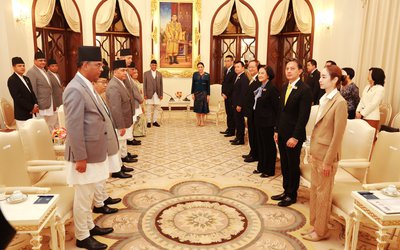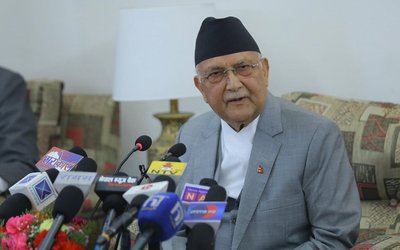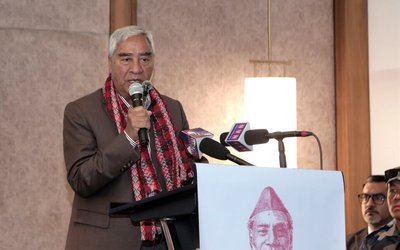
At a time when Nepal government lacks adequate resources to fund its development projects, the country can easily acquire additional 90 million US dollars from the Asian Development Bank's funds. However, there are criteria Nepal will need to fulfill.
The country needs to enhance its performance and efficiency to meet the criteria set for the funds.
Prolonged political instability, change in the government, and frequent transfers of employees have directly affected the implementation of Nepal’s projects. Problems are also there in auditing and project award contracts.
Against this backdrop, the government and ADB officials discussed the ways as to how to accelerate progress and achieve the targets set for the projects.
"It is possible for us. What we need to is put all our efforts to enhance project performance and increase the efficiency," finance secretary Shanta Raj Subedi told New Spotlight. "Going through the last two months’ performance, I am pretty sure that we will qualify for additional 90 million dollars.”
Addressing the two-day Asian Development Bank's Country Portfolio Review Meeting, finance secretary Subedi pledged to take all necessary actions to improve project portfolios, addressing the key issues. "We have made certain progress in the last few months in this regard."
Attended by the staff of ADB and the Government of Nepal, the Country Portfolio Review Meeting, reviewed the status of implementation of all ADB-assisted projects/programs. The meeting also examined and discussed country-specific common project implementation challenges and prepared a time-bound action plan with quantifiable monitoring targets to improve portfolio performance and delivery of results on the ground.
Explaining that the forthcoming five-year Country Partnership Strategy will place significant emphasis on improved portfolio performance and associated institutional development, Asian Development Bank's country director Kenichi Yokoyama emphasized on the need for (i) selectivity and focus on ADB operations to take up smaller number of larger projects forcing on critical bottlenecks such as infrastructure and human capital, (ii) enhancing project readiness with advancing detailed designs before project approval; (iii) strengthening project management systems with effective monitoring and troubleshooting, and (iv) pursuing genetic reforms for timely budget planning, approval and release, public procurement, public financial management, and other accountability mechanisms. He also underscored the need for substantially increasing the quality and quantity of capital investments in order for the country to go into a much higher growth trajectory of 7-8% per annum.
"If Nepal can improve its portfolio performance and meet the rating, Nepal can be still awarded 90 million US dollars," said Yokoyama. "As of 31 August 2013, ADB's active portfolio amounts to about $ 1.5 billion with 35 investment projects, of which $ 0.9 (60%) is still to be awarded, and $ 1.2. Billion (80%) is still to be disbursed, of which $ 0.9 billon (60%) is still to be awarded and $ 1.2 billion (80%) is still to be disbursed, which are very high ( and should ideally about 30% and 60 % respectively). In 2012, contract and disbursement was only 16% and 9% of uncommitted and undisbursed funds, which should ideally be over 20 Percent," said Yokoyama.
Nepal’s performance suffered in the last few years due to frequent transfers of project chiefs, lack of regular budgets and delay in the contract agreements. Political transition has badly affected the decision making process.
The two day meeting held on 26-27 September widely discussed various issues related to the projects and recommended the ways to improve the performance portfolio in various projects.
In the inaugural session, four projects helping to improve water supply and sanitation services, air safety standards and the lives of the rural poor and farmers in Nepal have been recognized for excellence in delivering results by the Asian Development Bank (ADB).
ADB has worked in partnership with the Government of Nepal since the country joined ADB as a founding member in 1966. ADB began lending to Nepal in 1969. As of 31 August 2013, Nepal has received 163 loans/grants—126 sovereign Asian Development Fund (ADF) loans ($3 billion), 5 non-sovereign loans ($58.64 million), and 32 ADF grants ($798.25 million) totaling $3.9 billion.
Although there are challenges ahead, there are ways to improve the performance and the progress of the projects. If that happens, Nepal may eligible for further assistance.
- IME GROUP: Expands Into Paper Industry
- Mar 24, 2025
- CPN UML: Instigated By India
- Mar 23, 2025
- ADB’S CHIEF ECONOMIST: Nepal Reduces Poverty
- Mar 11, 2025
- FM DR. DEUBA: A Successful Visit
- Mar 11, 2025
- MD GHISING: Target Of Personal Grudge
- Mar 09, 2025
